As the world becomes more digital, people are looking for ways to be more mobile. One way that this is done is through an Ultrabook Vs Laptop, so what should you choose?
An Ultrabook and a laptop both do different things with their own advantages and disadvantages. In this blog post, MedCPU will compare these two devices in order to help you decide which one is best for your personal needs.
What is an Ultrabook?
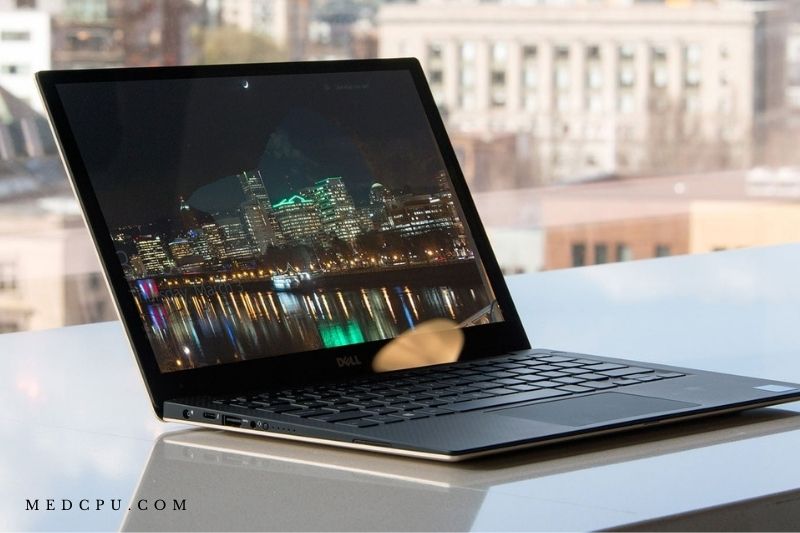
An Ultrabook is a super-thin laptop with an Intel processor. They are also powered by the cloud and have similar features to that of a tablet, like touch screens and long battery life. These laptops usually weigh less than three pounds, making them very easy to carry around all day without having any back pain or shoulder stiffness.
Pros of Ultrabooks:
- The main advantage of owning an Ultrabook is how lightweight it is in comparison to other laptops on the market today.
- The second benefit would be its speed because you can get things done quickly which allows for more time outside enjoying your free time instead of inside working at home or the office.
- Another big positive about these devices are their modern design; they come in many different colors so you can choose the one that best fits your style.
- Low power consumption
Cons of Ultrabooks:
- The biggest con about owning an Ultrabook is how easy it can get damaged if you are not careful with it.
- The laptop itself costs a lot more than a regular laptop, so if something happens to it like dropping in water or getting crushed by heavy objects, then you could be out hundreds of dollars instead of just twenty for most laptops on the market today.
- Another aspect would be its battery life; while these devices boast long hours without needing to recharge, they do require frequent charging compared to other laptops and tablets currently available which makes them less convenient when traveling from place to place constantly throughout each day.
What is a Laptop?
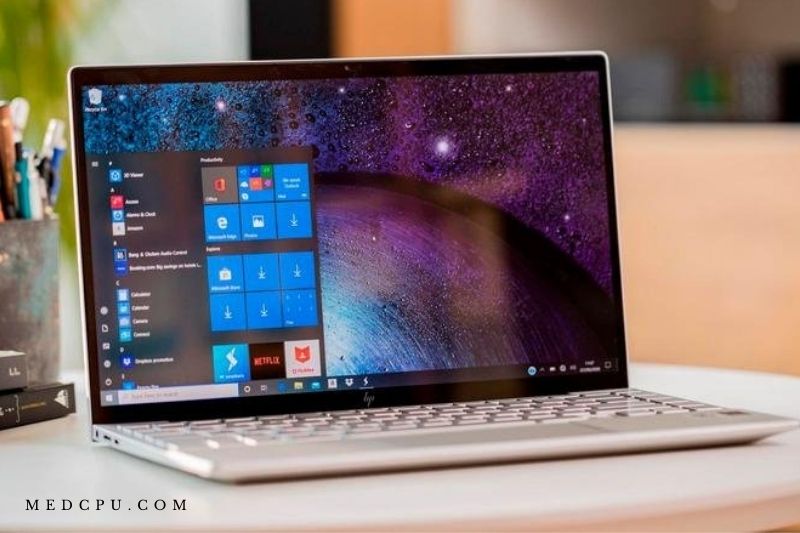
The laptop is a portable computing device that has been around for many decades. These devices include an integrated keyboard, trackpad, display, and keyboard that are all housed in one structure.
The device can be easily carried around when the lid is closed. Screen size determines the size of a laptop. Most laptops have a screen size between 13” and 20” in most cases. This is dependent on the configuration. The screen size for typical laptops is 15.6 inches. Laptops can weigh anywhere from 1 to 8 kilos.
Pros of laptops:
- The main pro about owning a laptop is how inexpensive it is compared to other devices that perform similar tasks.
- Another great feature would be its speed; most people who own one report that it works at breakneck speeds with no lag time whatsoever when completing basic tasks such as browsing the internet or checking email.
Cons of laptops:
- The biggest con about a laptop would be the lack of battery life; most come with at least three hours before needing to recharge whereas an Ultrabook and tablet can last much longer without having to plug them in.
- Another aspect is power where is lacks compared to other devices on the market today such as tablets or even smartphones which makes them less desirable for mobile users who need something more versatile than just surfing web pages all day long.
- However, some people are not fans of using their mouse pad instead of a touchscreen but that will change soon enough when Apple releases its new Macbook Pro models later this year.
Click here to get the Best Laptop Under 700 in 2021.
Differences Between Ultrabook vs Laptop
They are almost identical, even though it may sound like they have some hidden or significant difference.
Ultrabooks are laptops that use an Intel processor instead of a competitor’s brand and SSD storage. Ultrabooks are defined as having a width/thickness of less than 20mm and the ability to resume hibernation within a matter of seconds. While not all Ultrabooks laptops are Ultrabooks all Ultrabooks laptops are simply laptops.
This is clever marketing by Intel, which has trademarked the name to indicate that they use one of their processors. There isn’t much difference between an Ultrabook or a laptop, as most today use an Intel processor.
Although Intel Core processors are some of the most powerful CPUs available, they’re far from the only ones. AMD has been a strong brand in recent years, and it would be not easy to find anyone who doesn’t believe they provide excellent value for their money.
Although an Ultrabook may seem to have more processing power and better build quality than a regular laptop, this is not the case.
Display
Ultrabook
Although Intel does not have any requirements for laptop manufacturers when they put together their screens, that hasn’t stopped them from pushing the boundaries.
Although ultrabooks are not designed for photo or media streaming, they can still perform well in both of these tasks. Although they may not have the best displays, they are far from the worst.
You know that an ultrabook will come with a display that will work when you need it to and at a resolution that won’t make you strain to read the text as you fill out the following spreadsheet.
Laptops
Customers make one of the most significant mistakes when buying a laptop online. Although the screen manufacturer may list the specs, without seeing it in person, you can’t be sure that the quality of the product will hold up.
A company that focuses on its screen capabilities is what you should be looking for in a laptop monitor. Without actually seeing it, this is the only way to be sure that it meets your expectations.
Ultrabooks win for their consistency and the assurance that you will always get something great, regardless of brand.
Design/Keyboard/Trackpad

Ultrabook
These three components are grouped because you can expect a well-designed laptop computer to have a well-designed keyboard inside nine out of ten times.
One difference is that almost all ultrabooks come with a basic flat design. This can cause problems for some typists. Some people prefer tactile keys, and it can be not easy to transition from a flat-key design to one.
Ultrabooks are designed to maximize productivity for their owners. The keyboards must be fast, responsive, and solid. Trackpads should not leave users scratching their thumbs when scrolling through a page. With Intel’s quality control, all of this should be easy.
Laptops
This rule does not apply to laptops. You may find yourself with the worst keyboard possible for a beautiful shell that looks hand-crafted.
The screen is an example of a high-risk purchase. It’s a risky decision that can often lead to a poor experience. Many times, a laptop computer that looked great on paper, with great specs and a great design, ended up looking terrible on the trackpad and keyboard. Laptops have the advantage of being completely free in design, even though they are bulky on the keyboard.
Some are made of thin plastic pieces, while others are strong, carbon-fiber masterpieces. Some are thin, others are heavy, while some are in the middle. Laptops are the clear winner in this category due to their wide range of styles. On the other hand, Ultrabooks can be prone to same-itis, making them look sexier.
Laptops are the winner, even if they offer more options.
Thickness and Weight
The thickness and weight of typical laptops are not defined. They can be as large as 20 inches, up to 40mm thick, and up to 6 or 8 kilos in weight.
Ultrabooks are lighter and thinner than laptops. Ultrabooks can be found between 15.6 and 15.6 inches. A 13.3-inch Ultrabook should not exceed 20mm in thickness, according to Intel. The thickness of ultrabooks with touchscreens can reach 23mm.
Ultrabooks weigh less than 1.5 kgs due to these limits. Some Ultrabooks weigh less than 1KG. Some manufacturers use lighter materials such as Magnesium, Carbon Fibre, and Glass to make Ultrabooks. These materials aren’t standard on regular laptops unless you’re looking at the more expensive options.
However, this design is smaller, lighter, and more efficient than other Ultrabooks. Ultrabooks can be difficult to heat, especially if they are not designed correctly.
Performance
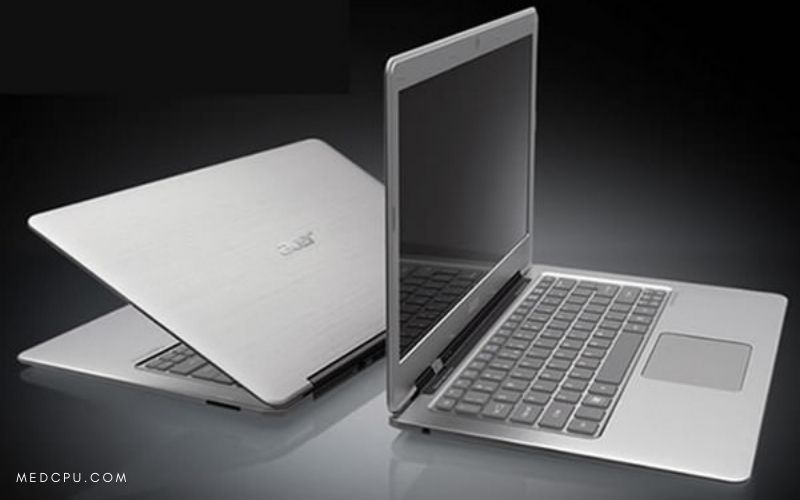
Another mandatory feature of an ultrabook includes Intel ULV Processors, which are Ultra Low Voltage processors.
To reduce power consumption and maintain stability, these processors are intentionally underclocked.
This is why ultrabooks have longer battery life.
These ultraportable notebooks can only be used for small tasks and are not meant to be portable workstations. However, ultrabooks have been seen with quad-core processors in the last year.
You’ll love the HP Spectre series.
Most ultrabooks come with integrated graphics. If you go for the more expensive options, you might get dedicated graphics properties. These devices have a minimum of 4GB RAM and a maximum of 8GB RAM. Ultrabooks combine these resources to provide a balanced output inefficiency, battery life, and speed.
Traditional laptops aren’t stable in terms of performance. Many laptops do not use SSD(solid-state drive) Storage or UAVs. These limitations mean that you can’t expect a fast boot-up speed in most laptops.
Hardware
The manufacturer does not specify the hardware that a laptop should use. This varies depending on its intended purpose. Ultrabooks must use Intel Ultra Low Voltage Processors such as the Core i3, i5, and i7 processors. They also need SSD Storage or a combination HDD+SSD.
Ultrabooks enjoy the following benefits due to the use of the above hardware:
- Battery life extended: Intel ULV processors are intentionally underclocked to lower power consumption and improve stability. Intel Corp. also has regulations regarding this topic. An Ultrabook with Intel Haswell chipset must have a Windows idle of 9 hours and HD Video playback of 6 hours.
- Shorter boot-up time: SSD offers faster boot-up times. Many Ultrabooks can be turned on in just a few seconds. The downside is that Ultrabooks’ SSDs may have smaller storage. To expand this storage, you might need to use a Pen Drive or portable HDD.
Storage
Ultrabooks can use SSD Storage or HDD+SSD.
Solid State Drives can be used for many reasons.
SSDs offer faster boot-up times. Many ultrabooks can be turned on in just a few seconds.
Second, SSDs last longer than HDD storage. Ultrabooks cannot store 1TB or 500GB SSD storage. They are usually reduced to 256GB, or even 128GB in most cases. However, you can use a Pen Drive or portable HDD due to the availability of removable storage options.
HDD storage is still available on most laptops.
This is because laptops should have a lot of storage.
There are, however, a few laptops with SSD Storage that offer enhanced performance.
Battery Life
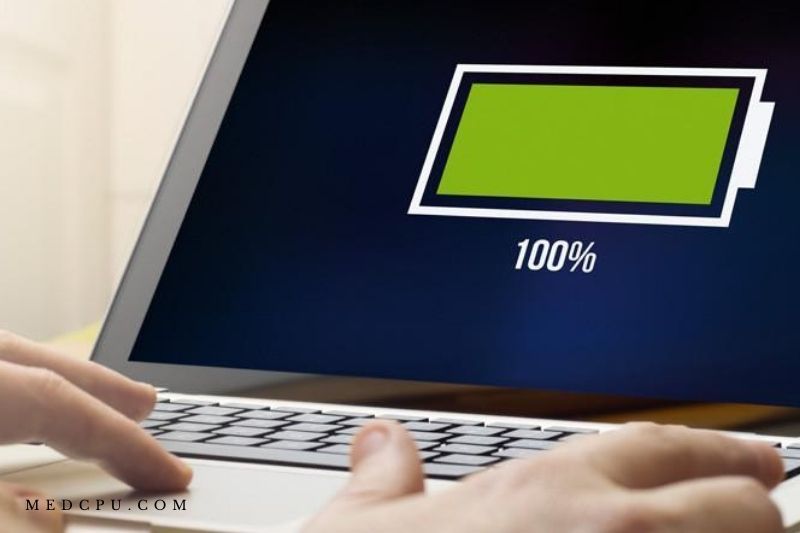
Ultrabook
Intel demands that ultrabooks have at least 9+ hours idle time, six hours video watching/heavy internet browsing, and seven days of idle standby. Ultrabooks are distinguished by their battery life, which is often two to five times longer than laptops.
Ultrabooks are designed for those moments when you don’t have the time or energy to write a report, but you get stuck on a bus. Ultrabooks are an excellent choice for this type of situation.
Laptops
The broad category of laptops computers can be used to fit almost any notebook, provided it isn’t otherwise denoted. This means that for every notebook with a powerful Intel Core i7 processor that lasts less than four hours on a single charge, many models run components that can extend the idle time past 16 hours.
The battery life of your laptop will vary depending on how high you set it. It also depends on the model you choose and its purpose (gaming, productivity, or watching movies, for example).
Pricing
Ultrabooks can be more expensive than traditional laptop computers.
A traditional laptop can be purchased for as low as $300 or $400.
If you want to purchase an ultrabook that is reliable and effective, you will need to spend approximately $1000.
Manufacturers are developing affordable ultrabook solutions. ASUS is one example.
ASUS offers a high-quality ultrabook for $100 less than a basic laptop. You will need to spend over $1000 if you want one of the most powerful ultrabooks.
FAQs ABout Laptop vs Ultrabook
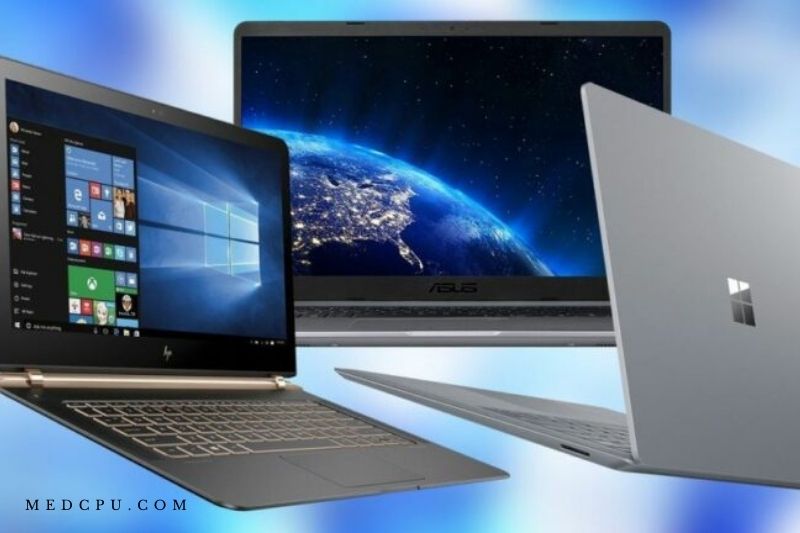
Do they have apps like phones?
Both devices do run certain applications similar to what you find on your smartphone. However, they are not as advanced or diverse in their selection of applications so that is something you will need to consider when making your purchase choice between an Ultrabook and a laptop.
How long do these devices last on one charge?
Most models can stay charged up to eight hours whereas other brands may go as high as twelve or more hours before needing to recharge depending on what you are using it for species such as streaming movies vs typing papers at school/work respectively.
How much does an Ultrabook cost compared to a regular laptop?
The price of Ultrabooks is anywhere from $500-$1500 dollars depending on the specific brand and model.
What’s a good Ultrabook to buy?
You can look at all the latest models of Ultrabooks if you are looking for an Ultrabook that is good to buy.
You just need to make sure they are slim, but not compromising battery life. This can be done using SSD storage and an Intel processor. These are just a few of the many laptops currently available. It’s difficult to choose one.
You can check out my list of the top ultrabooks under PS1000 if you are interested in purchasing one. You have many options to choose from, which could be considered an Ultrabook.
The HP Spectre x360 is a great example. It has a sturdy chassis, excellent hardware components, and a stunning display. The Macbook Air, with its upgraded processor unit and new keyboard, is another great example – although technically, it isn’t an Ultrabook because it doesn’t have an Intel processor.
Conclusion
That’s our comparison between Ultrabook vs Laptop. Now you know the difference between them.
An Ultrabook is a good choice if you are looking for something lightweight and portable but still able to perform like an expensive laptop, whereas laptops tend to be better suited towards those who need more battery life or have larger components built into the device itself.
Ultrabooks typically come pre-installed with Microsoft Office Suite while Laptops usually come equipped with Microsoft Word for Windows or Google Documents.
An ultrabook is the best choice if you are looking for a PC to take on business trips, to work with office documents, to surf the web, to play music and video, or if your finances permit you to afford high-quality style and quality.
Because of the small storage space available, ultrabooks will require external HDDs, flash drives, or network-attached storage. A standard laptop is ideal for travel, study, work with professional software, creating new games, and replacing a stationary machine.
Video:

Eyal Ephrat serves as the co-founder and CEO of medCPU.com, where technology is making significant strides in the field of medicine. Through his experience in purchasing PC and laptop equipment and various other tech products, Eyal Ephrat contributes valuable insights to medCPU’s mission.
